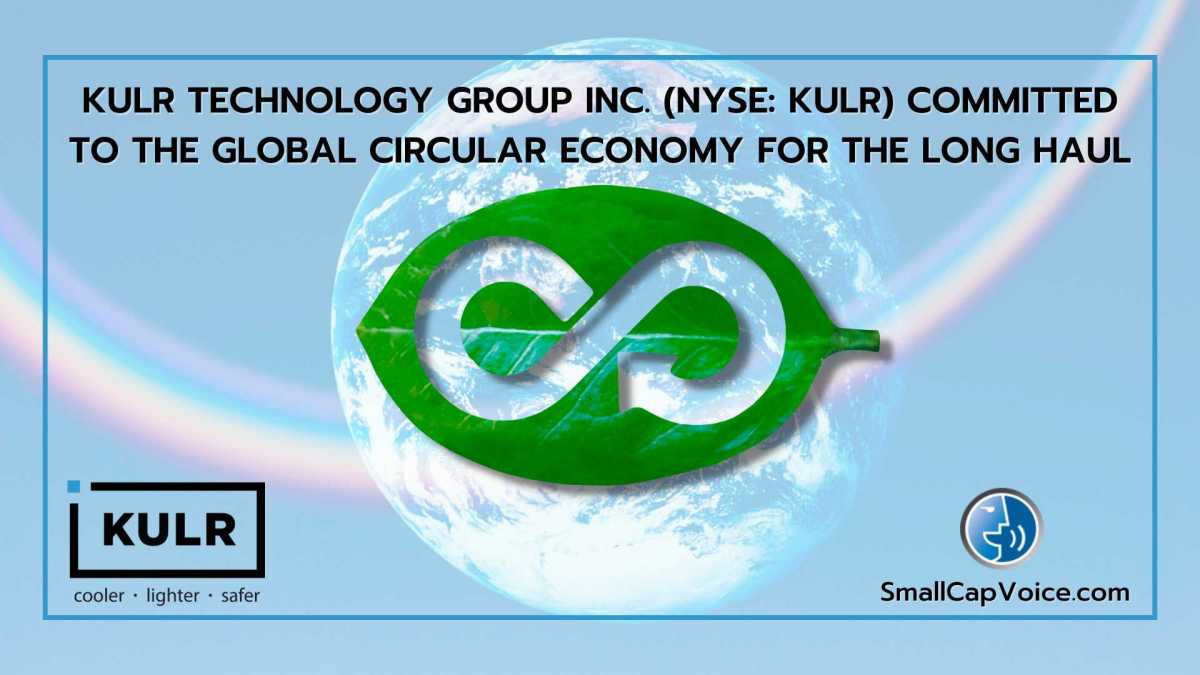KULR Technology Group Inc. (KULR) Committed to Global Circular Economy for the Long Haul
The market for lithium-ion batteries is growing with astounding speed, expected to reach $87.5 billion in the next six years. Initially used for consumer electronics in the 1990s and 2000, lithium-ion batteries now power electric vehicles (EVs), drones, power tools, space technology and a wide range of daily-use consumer products. By 2025, 700,000 tonnes – or approximately 14 billion lithium-ion battery cells globally will reach the end of their life cycle. How this waste is handled will greatly impact the environment and could pose a risk to human life.
The chemical makeup of lithium-ion batteries makes them susceptible to explosions and fire, triggered by a process called thermal runaway. Ideally, dead batteries are moved to scrapping, refurbishing or recycling cycling centers in a manner that mitigates or even eliminates the hazardous risk of fire inherent to lithium-ion-battery cells. Technology to prevent these fires and to ensure a safe, effective circular economy has been sub-par, if not lacking – and it’s exactly the problem KULR Technology Group (NYSE American: KULR) set out to solve eight years ago.
A circular economy is a system of production and consumption that promotes a reuse, repair, refurbish, recycle or similar process to extend the lifecycle of products that would otherwise go to waste. The current and impending mass of battery waste provides KULR, a leading developer of next-gen lithium-ion battery safety and thermal management technologies, an opportunity to build safeguards into the circular economy, building on the company’s heritage of thermal management technologies for aerospace and defense applications.
Since its inception in 2013, as stated in its recent shareholder letter, KULR’s long-term mission has been to co-develop thermal management technologies, working alongside NASA and government agencies to incorporate its technologies into mass market applications. With a technology portfolio already in place, KULR marked several milestones and achievements en route to hitting this goal.
KULR’s thermal (cooling) management technology keeps products cool and efficient to eliminate or reduce the risk of battery cells overheating, thus catching fire or exploding. The technology is ultra-lightweight and flexible, making it compatible with most power or electronic configurations; has been proven by various government testing authorities to stop or mitigate thermal runaway; and was tested and utilized by NASA in 2017 to safely ship and store batteries aboard the International Space Station (ISS). KULR’s roadmap to-date is flagged with other milestones, contracts and partnerships, including within the lucrative electric vehicle (EV) market where it is the official thermal management and battery safety provider for Andretti United Extreme E all-electric SUV racing series. As of 2021, KULR has brought its long-term strategy into fruition as it advances toward commercialization of its technology in two key markets: battery transportation and energy storage products.
Through a licensing agreement with Americase, for example, a manufacturer of commercial duty carrying cases for safety-crucial markets and the world’s most widely used return packaging provider for damaged, defective, or recalled lithium batteries, KULR’s passive propagation resistant (PPR) packaging solution will be used to supplement its “Battery Bag” products.
Through its patented, NASA-proven Thermal Runaway Shield technology, KULR has obtained three separate U.S. Department of Transportation (DoT) special permits to allow for the safe transport
of lithium-ion batteries to the next phase of their lifecycle, be it waste collection, processing, refurbishing company or other designated facility. As the only company with a DoT-approved product for storage and transport of lithium-ion batteries up to 2.1kWh, KULR provides a solution to safety concerns within the circular economy, securing an enviable position in a vast addressable market and.
Amid this flurry of progression, KULR has placed much energy in fine-tuning its corporate structure to support broader growth and societal improvements. The company has created an internal culture that meets the Environmental, Social and Governance (ESG) standards that an increasing number of investors are looking for in a public company.
KULR’s advances in product development and safe transportation logistics within the circular economy demonstrate its commitment to proper environmental stewardship, while its established framework of social standards has resulted in a diverse board of directors and intentional, professional relationships with its staff, partners, and vendors. As a publicly traded company headed toward mass commercialization, KULR’s recent uplisting to the NYSE American Exchange gives credence to its value of corporate governance and transparency.
As earlier noted, about 14 billion lithium-ion battery cells will soon hit the end of their lifetime. To implement a truly global circular economy, industry innovators are tasked with developing, testing and incorporating safe, efficient measures to handle this waste. KULR has stepped forward with technology tested and proven to safely transport these batteries through their lifetime – from prototype to commercialization and end-of-life cycle – by keeping them cooler and self-contained.


